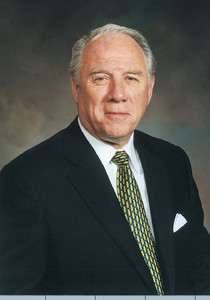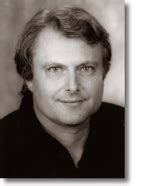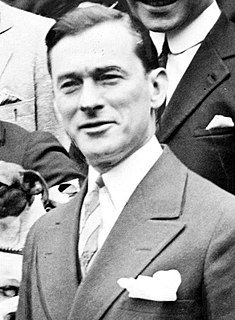Top 234 Repetitive Quotes & Sayings - Page 4
Explore popular Repetitive quotes.
Last updated on April 20, 2025.
There are people who have repetitive nightmares. And what happens is their brain is trying to process the stress and help their brain actually deal with what happens if this stress happens again, so their brain's preparing them to deal with it in case the stress happens again, but it's so scary that they awaken from it.
There has to be an element of repetition for TV... You want people to be addicted to your show, and the way to get people addicted is not to give it to them once, but to give it to them a few times, until they get on board with it. It's just about finding that balance of the necessary repetition and making the things that are repetitive absolutely necessary while keeping everything else fresh.
There is no basis in text, tradition, or even in contemporary practice (if that were enough), for finding in the Constitution a right to demand judicial consideration of newly discovered evidence of innocence brought forward after conviction. My concern is that in making life easier for ourselves we not appear to make it harder for the lower federal courts, imposing upon them the burden of regularly analyzing newly-discovered-evidence-of-innocence claims in capital cases (in which event such federal claims, it can confidently be predicted, will become routine and even repetitive).
In the first century CE, Roman authorities punished St. Apollonia by crushing her teeth one by one with pliers. Colin often thought about this in relationship to the monotony of dumping: we have thirty-two teeth. After a while, having each tooth individually destroyed probably gets repetitive, even dull. But it never stops hurting.
Your mind is an instrument, a tool. It is there to be used for a specific task, and when the task is completed, you lay it down. As it is, I would say about 80 to 90 percent of most people's thinking is not only repetitive and useless, but because of its dysfunctional and often negative nature, much of it is also harmful. Observe your mind and you will find this to be true. It causes a serious leakage of vital energy.
Individual societies begin in harmonious adaptation to the environment and, like individuals, quickly get trapped into nonadaptive, artificial, repetitive sequences. When the individual's behavior and consciousness get hooked to a routine sequence of external actions, he is a dead robot, and it is time for him to die and be reborn. Time to "drop out," "turn on," and "tune in.
Each of us plays four roles in relation to the brain. We lead, we inspire, we invent, and we use it. Most people do not actively use their brains. They passively let their feelings and thoughts control their lives. They don't invent new ways to use their brains, either, settling instead for the same routine and repetitive thoughts every day. But if you master all four roles, you create your super brain. When you are the active observer of your feelings and thoughts, you become the user of your brain. Your super brain then serves you, not vice versa.
The Christian is the person who sees every time and every situation, however dreary and repetitive, as God sees it - a fresh creation from his hand, demanding its own response in perhaps a wholly new and creative way. Under God he is free over it. He has won through to a purchase over events; he has risen with Christ.
Nothing is going to stay the same; nothing's gonna sound like in 1952. There's some stuff that has some elements of back in the day, like back in the 90's, back in the 80's or whatever. Some elements, but it's not going to be the same, exactly, sounding. And I love it, I've seen the music change. I've seen the flow and the energy go from turned up to turned down to back to turned up. I like to try different stuff. I don't like to do the same old thing over and over again. I don't like to be repetitive, that gets on my nerves.
I'm at the point in my career now, where I can take a bit of time to find exactly what roles are that I want to do and not work myself into a corner. I love acting and I love who I'm becoming, as I evolve as a human being. My work is an important part of me, which may or may not be healthy, so I need to do things that I love. I want to tell interesting stories, discover things about myself, and other people. The only way to do that is to not take jobs that feel repetitive or boring to me because then you're stuck doing that job instead of finding the thing that speaks to you.
Basketball is an intricate, high-speed game filled with split-second, spontaneous decisions. But that spontaneity is possible only when everyone first engages in hours of highly repetitive and structured practice--perfecting their shooting, dribbling, and passing and running plays over and over again--and agrees to play a carefully defined role on the court. This is the critical lesson of improve, too, and it is also a key to understanding a puzzle of Millennium Challenge: spontaneity isn't random.
I love a lot of American writers, but I think that for the most part the scope of what's accepted as great American writing is very limited. What we have is good, but it's limited. There's not enough engagement with the world. Our literature's not adventurous enough. The influence of MFA writing tends to make things repetitive. The idea that writing can be taught has changed the whole conversation in the U.S.
When I was a child, my behavior was far from being what most people would label 'intelligent.' It was often limited, repetitive and anti-social. I could not do many of the things that most people take for granted, such as looking someone in the eye or deciphering a person's body language, and only acquired these skills with much effort over time.
Hard-earned achievement brings a sense of self-worth. Work builds and refines character, creates beauty, and is the instrument of our service to one another and to God. A consecrated life is filled with work, sometimes repetitive, sometimes menial, sometimes unappreciated but always work that improves, orders, sustains, lifts, ministers, aspires.
People would do well to ask themselves how many of their ambitions and aspirations derive from the type of economic system they inhabit and the insecurity and exhaustion it creates, and question the sense and purpose of a society where control of a large portion of life is abdicated under contract in the labour market, and where immense creativity and potential is stifled by the need to do difficult and repetitive tasks in order to earn a wage.
Daily fervent prayers seeking forgiveness and special help and direction are essential to our lives and the nourishment of our testimonies. When we become hurried, repetitive, casual, or forgetful in our prayers, we tend to lose the closeness of the Spirit, which is so essential in the continual direction we need to successfully manage the challenges of our everyday lives. Family prayer every morning and night adds additional blessings and power to our individual prayers and to our testimonies.
Like Semmering Academy, the Grove School was a Gothic pile of bricks run by 1950s-era chalk drones, which maintained its cultural viability by perpetuating a weirdly seductive anxiety throughout its community. Mary herself was a victim of the seduction; despite the trying and repetitive emotional requirements of her job, she remained eternally fascinated by the wicker-thin girls and their wicker-thin mothers, all of them favoring dark wool skirts and macintoshes and unreadably far-away expressions; if she squinted, they could have emerged intact from any of the last seven decades.
Eat, drink, and be merry is perfectly good in itself; nothing is wrong in it. But it is not enough. Soon you will get tired of it. One cannot just go on eating, drinking, and merrying. Soon the merry-go-round turns into a sorry-go-round - because it is repetitive. Only a very mediocre mind can go on being happy with it.
When I was in London I found house music and techno, and I love that s - t. It's my go-to music. It's the closest for me to the old funk of James Brown and the repetitive dance music that I like from the soul music. I'd love to do a live album, like a little bit old school but still progressive, influenced maybe by more electronic music. I like everything, but I don't know anything about music. So it comes in to a lot of different ingredients.
The rest-the vast majority, tens of thousands of days-are unremarkable, repetitive, even monotonous. We glide through them then instantly forget them. We tend not to think about this arithmetic when we look back on our lives. We remember the handful of Big Days and throw away the rest.
We organize our long, shapeless lives into tidy little stories...But our lives are mostly made up of junk, of ordinary, forgettable days, and 'The End' is never the end.
The Sage of Toronto... spent several decades marveling at the numerous freedoms created by a "global village" instantly and effortlessly accessible to all. Villages, unlike towns, have always been ruled by conformism, isolation, petty surveillance, boredom and repetitive malicious gossip about the same families. Which is a precise enough description of the global spectacle's present vulgarity.
As Colin Wilson has written, "modern civilisation, with its mechanised rigidity is producing more outsiders than ever before-people who are too intelligent to do some repetitive job, but not intelligent enough to make their own terms with society." Those "intelligent enough" to make their own terms with society are what we will later refer to as artists of life. The outsider views himself as a product of a culture he rejects-the artist views himself as a culture-builder.
Historical fact: People stopped being people in 1913. That was the year Henry Ford put his cars on rollers and made his workers adopt the speed of the assembly line. At first, workers rebelled. They quit in droves, unable to accustom their bodies to the new pace of the age. Since then, however, the adaptation has been passed down: we've all inherited it to some degree, so that we plug right into joy-sticks and remotes, to repetitive motions of a hundred kinds.
I've always had mixed feelings. I don't know if it's any better or worse. I do think there's a really boring side of what's going on now - the over-repetitive, oversexualized thing. There's a lot of women that know better, that are really beautiful and sexy, but it's like: We know you can shake your ass in a G-string and wave it around, it's not that risque. It's not dangerous. It's very obvious and boring.
Nobody else can really begin to sort out for you what to accept and what to reject in terms of what wakes you up and what makes you fall asleep. No one else can really sort out for you what to accept - what opens up your world - and what to reject - what seems to keep you going round and round in some kind of repetitive misery.
So many people imagine housekeeping to be boring, frustrating, repetitive, unintelligent drudgery. I cannot agree. In fact, having kept house, practiced law, taught, and done many other sorts of work, low and high-paid, I can assure you that it is actually lawyers who are most familiar with the experience of unintelligent drudgery.
I think I'm most comfortable when I function in a parallel space that's not separate from political reality, but somehow comments on it from a different portal. The crisis in the Middle East has been ongoing and repetitive and I feel solutions on the ground have reached an impasse. It is somehow necessary to change the way we approach commentary on the subject. I do think that erecting a meta-space that functions according to its own autonomous abstractions and logic could be more effective in finding ways of dealing with the problem at hand, than using our standard tools of analysis.
I wish I could tell you about the South Pacific. The way it actually was. The endless ocean. The infinite specks of coral we called islands. Coconut palms nodding gracefully toward the ocean. Reefs upon which waves broke into spray, and inner lagoons, lovely beyond description. I wish I could tell you about the sweating jungle, the full moon rising behind the volcanoes, and the waiting. The waiting. The timeless, repetitive waiting.
You see that in the news constantly; done both the right way and the wrong way. The most recent example I can think of, obviously, is Lance Armstrong, who got it all wrong. Who wanted to apologize strategically, instead of abjectly. What got me interested was the repetitive nature of it. There's something so ritualized about it. Then the ritual needs to be reenacted very carefully and pretty frequently - Tiger Woods, and now Manti Te'o and Lance Armstrong, and a little earlier Anthony Weiner or Eliot Spitzer.
I was always incredibly obsessed with germs and cleaning and taking shower after shower after shower. Even when I was very young, I wouldn't tie my shoelaces because they had touched the ground. I had continuous repetitive thoughts that I couldn't get past. As a child, my mind was a lot busier than I was.
I'll tell them how I survive it. I'll tell them that on bad mornings, it feels impossible to take pleasure in anything because I'm afraid it could be taken away. That's when I make a list in my head of every act of goodness I've seen someone do. It's like a game. Repetitive. Even a little tedious after more than twenty years.
But there are much worse games to play.
There's a lot of different ways that a song would be a challenge to parody. There are a lot of songs that would ostensibly be a good candidate for parody, yet I can't think of a clever enough idea. Some songs are too repetitive for me to be able to fashion a humorous set of lyrics around. Some songs flat-out just don't work creatively for me.
I want regulation. I want to protect our environment. I want regulations for safety. I want all of the regulations that we need, and I want them to be so strong and so tough. But we don't need 75 percent of the repetitive, horrible regulations that hurt companies, hurt jobs, make us noncompetitive overseas with other companies from other countries.
In the turbulence of this anxious and active world many people are leading uneventful, lonely lives. To them dreariness, not disaster, is the enemy. They seldom realize that on their steadfastness, on their ability to withstand the fatigue of dull repetitive work, and on their courage in meeting constant small adversities depend in great measure the happiness and prosperity of the community as a whole. ... The upward course of a nation's history is due in the long run to the soundness of heart of its average men and women.
There are so many comics about violence. I'm not entertained or amused by violence, and I'd rather not have it in my life. Sex, on the other hand, is something the vast majority of us enjoy, yet it rarely seems to be the subject of comics. Pornography is usually bland, repetitive and ugly, and, at most, 'does the job.' I always wanted to make a book that is pornographic, but is also, I hope, beautiful, and mysterious, and engages the mind.
Once in a mental hospital, a person grows used to the freedom that exists in the world of madness and becomes addicted to it. You no longer have to take on responsibilities, to struggle to earn your daily bread, to be bothered with repetitive, mundane tasks. You could spend hours looking at a picture or making absurd doodles. Everything is torelated because, after all, the person is mentally ill.
That is why I think, in defiance of Plato, that there is at once error and vulgarity in saying that poetry is a lie, except in the sense that Cocteau wrote one day: I am a lie who always tells the truth. The only poetry which lies purely and simply is academic, pseudo-classical, conceptually repetitive poetry, and it is not poetry.
From working with Ralph Lauren, I started to understand what it meant to build a brand. There were times when I was working there that it seemed so repetitive. At the time, I didn't understand what was happening. But when I stepped out of it, I realized what he was doing was achieving a signature look and reiterating that. That's why when you think about a polo shirt you think about Ralph - he owns that garment.
Cooking is work that is traditionally done by working-class people. The work itself is not glamorous. It's repetitive, and it's a lot closer to factory work than art, whatever level you're doing it at. Certainly chefs are used to living like rock 'n' rollers to some extent, inasmuch as we get a lot of those fringe benefits without having to learn how to play guitar.
If you're serious about singing or acting, which are two art forms that get repetitive, the way to keep the music fresh is to recognize that it is totally impossible for it to ever be the same, night after night. You open your mouth and you'd like a certain sound to come out of it, but it doesn't always come out exactly like you thought it was going to come out!
Once one realizes that magick works, and that it works based on scientific factors, the next step is to hone one's skill to reach repetitive success. What makes magick so interesting is that because we are individuals, the combination that unlocks the door to success will vary from person to person, yet the main thrust of the work operates on a specific set of scientific formulas that our scientists are only now beginning to fathom. The mystery, then, lies within each of us.



















































